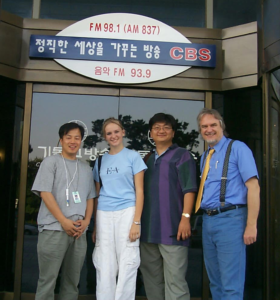Churches are dying. Speaking of all churches, Wesley Granberg-Michaelson writes in the forward of Jack R. Reese’s important book, At the Blue Hole: Elegy for a Church on the Edge:
By best estimates, about 350,000 congregations are found in the United States. A majority are not thriving. Some experts say that in the next three decades between 30 percent and 40 percent are likely to close—around 100,000 congregations. The average age of those attending congregations has increased and the average size has decreased, with a majority dipping below one hundred members. These trends now show no theological discrimination: liberal and conservative, evangelical and mainline show similar patterns.
Wesley Granberg-Michaelson
These statistics hold true for churches of Christ as well. Best estimates predict we will decline from about a million members in 12,000 congregations today to “to as few as 250,000 members and 2,800 congregations in the next thirty years.” [1]
Wesley Granberg-Michaelson, correctly I believe, lists five reasons why this is so:
- Demography. We are “aging out.” Twenty percent of the population at large is between the ages of eighteen and thirty-four. I’m afraid that percentage is much lower in our congregations.
- Nones. The fastest-growing religion in America today is “none.” Why should this be so?
- Inward Focus. Granberg-Michaelson observes:
“Faced with threats of decline, many congregations become preoccupied with their internal life, struggling to attract more people through the doors in any way possible.”
- Impotent Witness. The Culture Wars focused on conspiracies, politics, “idolatrous nationalism, judgmental exclusivism, and implicit cultural superiority.”
- Shallow Spiritual Transformation. Without roots, commitment dies.
Before I begin pointing fingers, I need to remember four of those fingers are pointed back at me. I fear preachers are primarily responsible for our decline. For example, think of the use of gimmicks instead of the Gospel to attract people to God. The church calendar is filled with programs and activities. We are impotent witnesses “holding a form of godliness but denying its power” (Paul, 2 Timothy 2:5). We are preaching lessons that sound more at home on Oprah or Dr. Phil than in the pulpit.
But the greatest failing is failing to know the Lord. How would you answer Pharaoh’s question, “Who is the Lord?” (Exodus 5:2) Where is the fire in our souls?
What is the solution? I am not overly concerned about the church “aging out.”
America is now on the brink of an elderly boom, and the new projections illustrate its magnitude. Since the 1950s, the number of older people (those ages 65 and older) has been growing gradually, but it will increase sharply beginning in 2011 as the baby-boom generation (born between 1946 and 1964) begins to turn 65. Today, roughly one in eight Americans are older, up from roughly one in 10 in the 1950s. By 2030, when the entire baby-boom generation has reached age 65, older people are expected to include almost one in five people. This share resembles Florida’s population today. By 2050, the share will be slightly more than one in five. [2]
We’re not “aging out.” We should be reaching out to the fastest-growing segment of the American population! Yes, we need younger families, but we need to be deeply concerned about why we are not attracting more people of all generations!
[1] Reese, Jack R. At the Blue Hole: Elegy for a Church on the Edge (p. 13). Wm. B. Eerdmans Publishing Co. Kindle Edition.
[2] https://www.prb.org/resources/u-s-growing-bigger-older-and-more-diverse/









